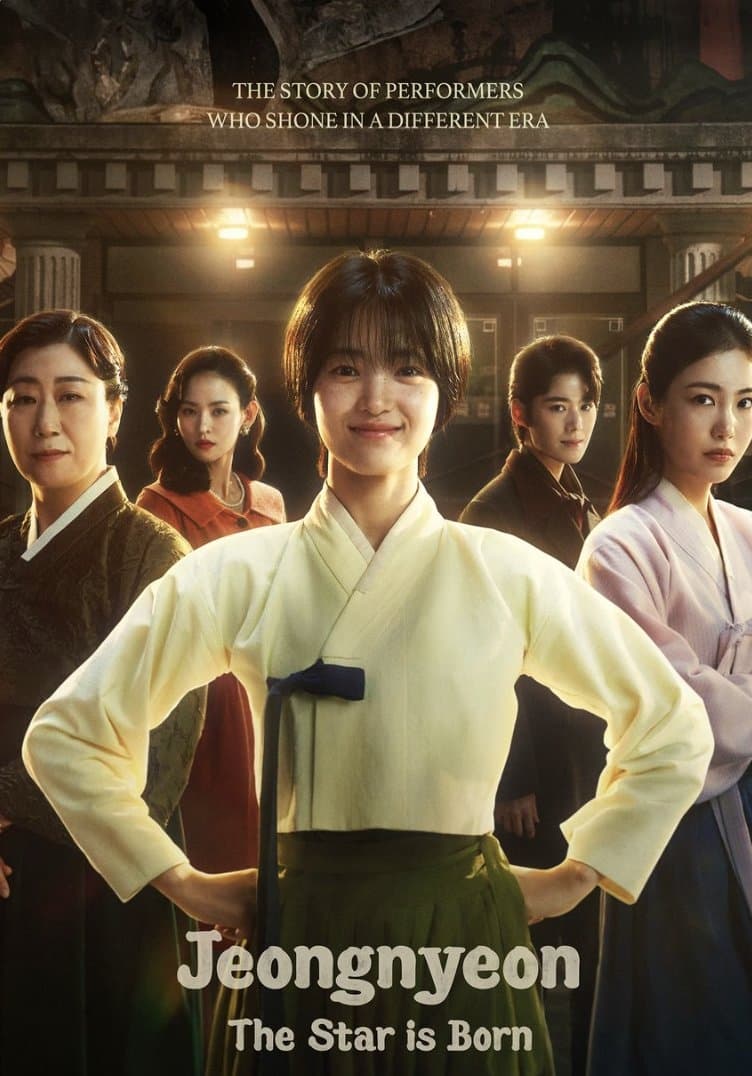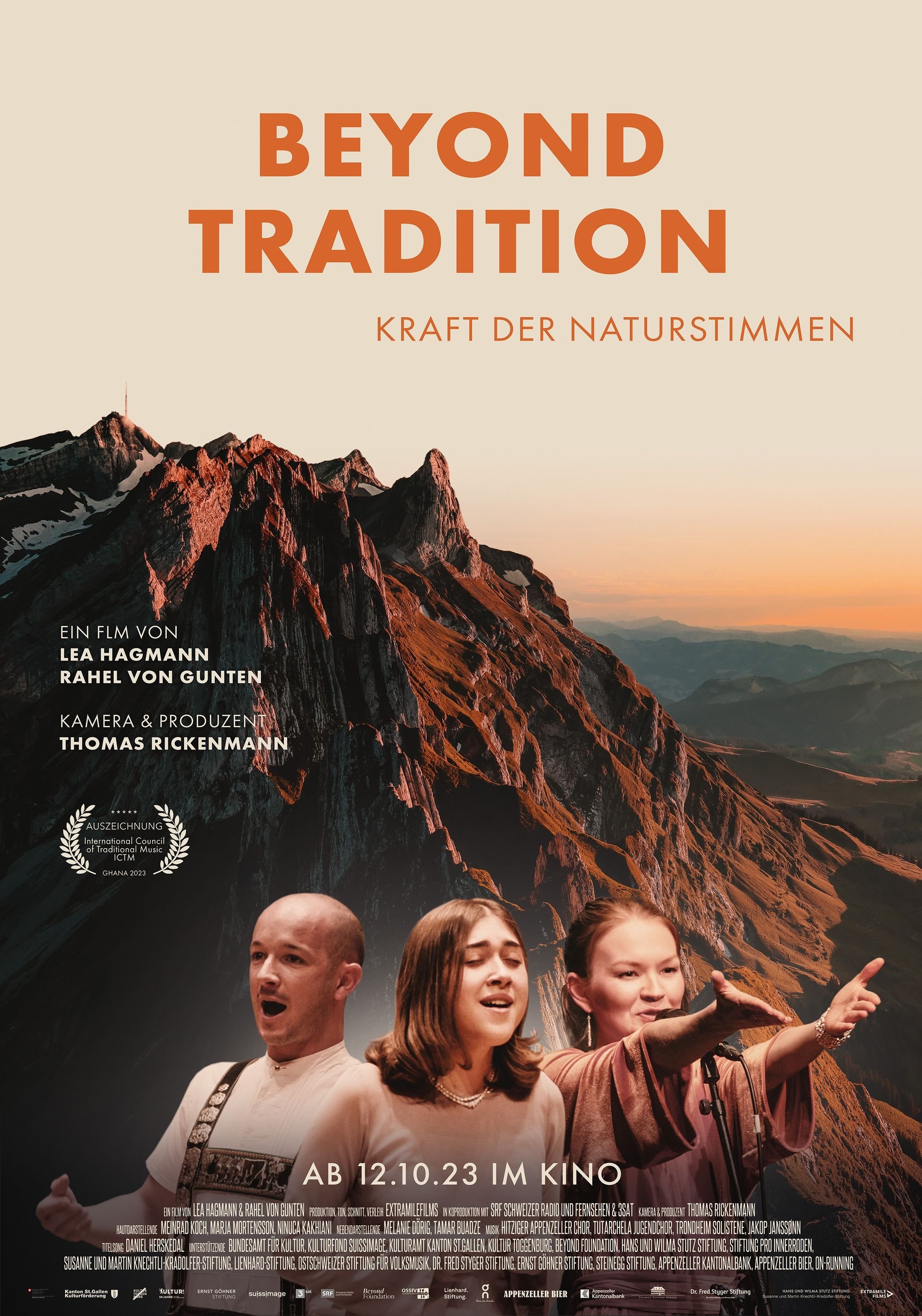
In the Sardinian town of Tonara, where the ancient art of crafting cowbells teeters on the edge of extinction, a family battles to preserve their heritage, passing down skills to a new generation while grappling with personal struggles and the pull of modernity. English subtitles.

The 1950s were an era filled with desire and aspiration, despite the aftermath of the Korean War. Jeongnyeon, a girl with a gifted voice, embarks on a journey to become the best actor of gukgeuk, or Korean female classical opera, where she encounters competition, solidarity, and growth.

Since the graduation of the senior members of the club, Takezou ends up being the sole member of the "Koto" (traditional Japanese string instrument) club. Now that the new school year has begun, Takezou will have to seek out new members into the club, or the club will become terminated. Out of nowhere, a new member barges into the near-abandoned club room, demanding to join the club. How will Takezou be able to keep his club alive and deal with this rascal of a new member?

Toyoda Toshiaki went to Sado Island and filmed musician Koshiro Hino and Kodo, the local Taiko Performing Arts Ensemble, while they performed music composed especially for Shiver.

Pong Lang dancing is Plengpin's favorite thing, but her mother who's a former top Pong Lang dancer always tries to stop her from doing it. Daopradub is planning to make the Pong Lang group of E-Sarn Orn Sorn come back with a new generation of dancers. She's impressed by Plengpin's performance and offers her a chance to audition for the group. Poom, Duenpradub's son, convinces her parents to let her join after she helps him get away from ruffians. Plengpin's intention is not only to pursue her dream but also find out what happened in the past. Why are her parents against her being a Pong Lang dancer?

Sawamura Matsugorou is a shamisen player of legendary talent. Upon his death, his grandson, Sawamura Yuki, lost his ability to play. Having lost his beloved sound, Yuki finds himself in Tokyo in search of a new sound to love. Tachimura Yuna, who works at a club, hooks him up with a gig to play there as a warm up act. Yuki imbues the sound of his shamisen with his many thoughts and feelings he has of others, still searching for his own sound and his own feelings.


In the summer of 1961, a group of young Italian anthropologists made a clandestine journey through Spain, in order to record popular songs that supported anti-Franco resistance. As a result of their work, they were prosecuted and their recordings were censored. Sixty years later, and guided by Emilio Jona, aged 92, the last living member of that group of travellers, we recover the unpublished recordings and reconstruct the journey, today, across an emotional and political landscape, regaining historical memories through these songs, as relevant today as they were then.

What is tradition? This is the question posed by yodeller and food researcher Meinrad Koch from Canton Appenzell. In search of an answer, he embarks on a journey.

Unustatud rahvad (1970 - 1989) by Estonian composer Veljo Tormas is based upon six Balto-Finnic peoples traditions. Collegium Musicale choir brought the songs to different sides of Baltic coasts to liven current citizens connections for fleeting past and strengthen their identity.

Lee Gyu Won is the daughter of one of the top three maestros of pansori and is also a gayageum protégé herself. Following her grandfather’s wishes for her to study the gayageum, she enrolls as a major of gugak, or traditional Korean music. Lee Shin is unfriendly, yet a clever student in the Applied Music Department who also is the famed vocalist and talented guitarist of the handsome band named The Stupid. With charming looks equal to those of a handsome character in a romance comic and a cold, taciturn personality, he thinks gugak is boring and belittles it. As the vocalist Lee Shin and Gayageum Protégé Lee Gyu Won passionately confront each other to champion their respective music, they soon fall in love.

An intimate documentary portrait of world-class improvisational and traditional pianist Mike Garson as he tours, performs, and teaches.

When the rain ends, life sprouts from the earth. A fruit grows and becomes the apple that gives life to the cider. Then comes the time of harvest, toasting and celebrating love. A story about the cycle of life and death, of the struggle for survival. Where the passage of time is marked by the course of nature, music and dance.

A youth inspirational film, about how a group of high school students try to revive Chinese orchestra ensemble. They face many challenges along the way to compete nationally, including a rivalry with the more popular Western orchestra club.
By browsing this website, you accept our cookies policy.